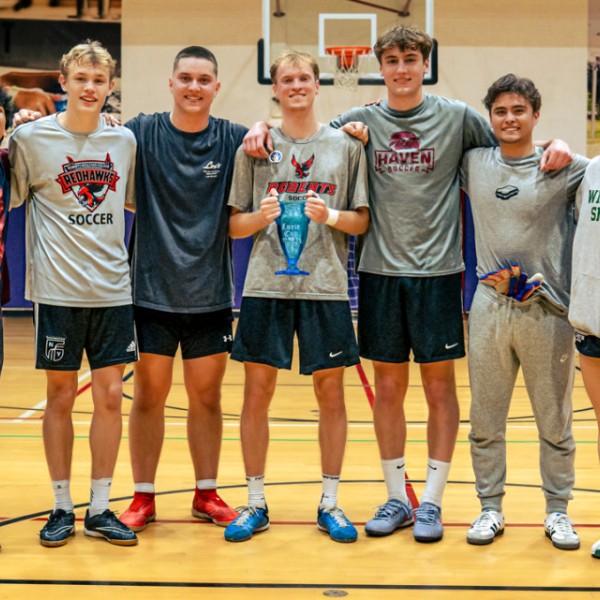The Polson Institute for Global Development announced its new Spring 2023 grants to support research at the intersection of Global Development’s signature strengths in wellbeing and inclusion; environmental sustainability; and food and nutritional security.
In addition to the institute’s Fall 2022 grant awardees, seven new grants will support projects ranging from research collaborations in Hungary to engaged student experiences in Ecuador.
“I am pleased that the Polson Institute has been able to support so many compelling research, teaching and extension initiatives in the Department of Global Development this year,” said Mildred Warner, professor of city and regional planning and global development and director of the Polson Institute.
According to Warner, the research will advance connections within Global Development and with strategic partners domestically and internationally, such as the National Extension Climate Initiative and a new Cornell Humphrey Fellows Alumni Network.
“Faculty and students are at the core of our mission in Global Development,” said Warner. “We are thrilled to support student-driven initiatives, such as new faculty-student research partnerships, a new Research Working Group focused on critical development studies, and the Polson Distinguished Lecturers.”
While Polson has co-hosted several speakers this year, such as David McDonald (Perspectives in Global Development) and Malini Ranganathan (Critical Development Studies), the Polson Distinguished Lecturers will rejuvenate the institute’s long-standing tradition of inviting prestigious faculty to campus for collaborations with faculty and students.
Two faculty will visit Cornell for a multi-day series of lectures and workshops in the 2023-24 academic year. In the Fall, Polson will welcome Nik Heynen, a Distinguished Research Professor at University of Georgia’s Department of Geography. Henyen was selected based on his important contributions in political ecology, particularly in the areas of urban political ecology, abolition ecology, and neoliberal natures.
The institute will also host Rashad Williams, Assistant Professor at the University of Pittsburgh. Emerging as one of the leading Black Political philosophers of the day, Willliams’ work centers on radically antiracist reparative planning and the implications of critical race materialisms. Williams’ visit will build on Polson’s co-sponsorship of the Spring 2023 Racial Capitalism workshop with Cornell’s Einaudi Center for International Studies and the Center for Comparative Modernities.
“This semester’s awardees demonstrate just how hard our faculty and students work to bring critical development perspectives to the field,” said Warner. “We are especially pleased to be able to provide collaborative grants to strengthen departmental initiatives in graduate education, the Humphrey Fellows program, undergraduate engaged learning exchanges and national extension initiatives.”
Collaborative Grants
Fostering Faculty-Student Collaboration in Global Development Signature Strengths
With an objective to increase engagement between faculty and students in Global Development, this project will support three faculty-Ph.D. student pairs who will conduct research within Global Development’s signature strengths:
- Jarvis Fisher and Jenny Goldstein: Comparative Research on National Rice Self-Sufficiency
- Matias Flores Gonzales, Carolina Osorio Gil and Scott Peters: Towards a South-North dialogue on extension and community engagement
- Emily Baker and Rachel Bezner Kerr: Drivers and barriers to agroecological practices in Africa
- Mengzheng Yao and John Zinda: Current trends in woody perennial crops in China
Aside from advancing scientific knowledge, the project also seeks to foster greater dialogue and collaboration within the Global Development community. A fall roundtable will showcase these research projects, providing opportunity for highlighting fieldwork findings and helping to build a broader intellectual community.
- PI: Rachel Bezner Kerr, Global Development
- Collaborators: Scott Peters, Global Development, Parfait Eloundou-Enyegue, Global Development
Harnessing the Humphrey Fellows Alumni Network for Global Engagement
Cornell University has hosted the Hubert H. Humphrey Fellowship Program since 1980 resulting in an alumni network of more than 400 fellows in more than 120 countries. At Cornell, the program focuses on three, often overlapping, areas of interest: agriculture, rural development, and natural resource management. While several efforts have been made to integrate the current Fellows into teaching, research, and outreach activities, the alumni network remains largely untapped. The goal of this project is to better utilize the resources and connections available within the vast alumni network to bolster the Humphrey Fellows Program's mission and goals, and to create mutually beneficial opportunities for Global Development, CALS, and the wider Cornell community. The main activities include (1) building and managing a database, (2) establishing social media platforms, (3) convening an online conference, and (4) resource mobilization for sustainability.
- PI: Ed Mabaya, Global Development
- Collaborators: Polly Endreny Holmberg, Global Development
Reciprocal Short-Term Student Exchanges as Ethical Engaged Pedagogy in Global Development
A new bilateral student exchange will allow students from Cornell and the Universidad de San Francisco (Ecuador) to work together on comparative development issues, first meeting online for 10 weeks of class before traveling to each other’s respective communities for further collaboration during Spring Break. This student exchange furthers the goals of Global Development by: 1) piloting a Spring course with Spring break travel - a model not currently adapted for globally engaged learning in the department - which if successful could be replicated; and 2) piloting a short-term reciprocal exchange of students, that positions both Ecuador and Upstate NY as co-equal parts of the “global classroom” and operationalizes the department’s commitment to exploring both local and international manifestations of development challenges. The planning stage of this exchange was funded by a Cornell Global Hubs International Curriculum Development Grant to design.
- PI: Julie Ficarra, Global Development
- Collaborators: Karla Diaz, Universidad San Francisco de Quito (Ecuador)
Small Grants
The Department of Global Development and the National Extension Climate Initiative
Global climate change represents perhaps the most salient challenge of the 21st Century. The prospects for progress and equity in the Department of Global Development’s concentrations — social & economic development, agriculture & food systems, and environment & development — will be fundamentally linked to efforts to mitigate and adapt to climate change. Global Development already has a significant and expanding profile of climate change research, teaching and outreach. This project will enable the department to better assess the scope of this work and to increase its relevance from the perspective of the New York State and national Cooperative Extension systems. The project’s national impact and resources will be enhanced by efforts to deepen existing ties of Global Development to the National Extension Climate Initiative, an organization recently founded to mobilize and coordinate the applied research and outreach resources of the US land grant university system in order to more effectively address climate challenges.
- PI: David Kay, Global Development
Amanda Labarca and bell hooks in Berea College: South-South Intercultural Translations
This project explores the connections of two feminist scholars from different times and regions with a goal to re-imagine decolonized futures of higher education. Contributing to the emergence of epistemologies of the South, we will apply “intercultural translations” to the cases of Amanda Labarca (Chile, 1886-1975) and bell hooks (USA, 1952-2021), who were related to Berea College, a private higher education institution in Kentucky.
- PI: Scott Peters, Global Development
- Collaborators: Matías Flores, and Carolina Osorio Gil, PhD students in Global Development
Household Livelihood Strategies in Rural Hungary: 30 Years After Socialism
This research examines strategies that rural households use to make a livelihood in rural Hungary and how households use social resources to buffer economic distress. The study is being conducted in Hungary, an ex-socialist country that is characterized by dramatic regional and rural-urban inequalities in economic well-being. It examines social and relational strategies households use to buffer the effects of high unemployment, low wage work in dead end jobs, and ineffective social welfare systems that characterize many rural areas in ex-socialist countries.
- PI: David Brown, Global Development
- Collaborator – Kodolányi University (Hungary)
Working Groups
Critical Development Studies Research Working Group
The Critical Development Studies research working group aims to maintain and build on Cornell's leading role in critical development studies scholarship. The group consists of several streams of activity: a biweekly reading group, a film series, and a running workshop on methodology. The group promotes interdisciplinary collaboration in critical development studies research by connecting graduate students and faculty across the university through interdepartmental networking and community building. A methodology workshop is planned for October 2023, and the group will host a week-long graduate student workshop in Spring 2024. Ultimately, the group seeks to strengthen Global Development’s commitment to critical development studies by drawing on the university’s unique strengths and uniting like-minded scholarship across departments and disciplines.
- Faculty advisory committee: John Zinda, Global Development, Chuan Liao, Global Development, Jenny Goldstein, Global Development
- Graduate student organizing committee: Kathryn Foster (Global Development), Timothy Ravis (Global Development), Tamar Law (Global Development), Duke Mwedzi (Global Development), Roderick Wijunamai (Anthropology), Finn West (Anthropology), Vishal Nyayapathi (Science and Technology Studies)





